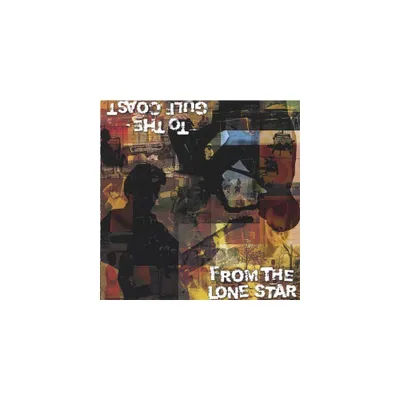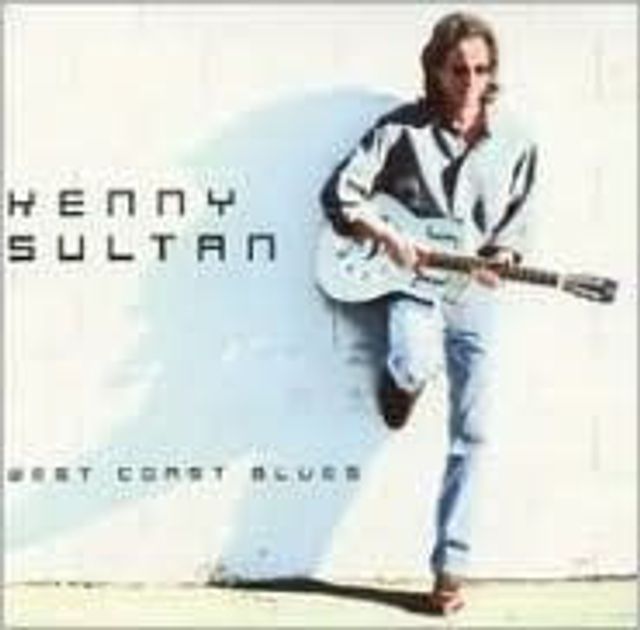Home
Gulf Coast Blues
Loading Inventory...
Barnes and Noble
Gulf Coast Blues
Current price: $13.99


Barnes and Noble
Gulf Coast Blues
Current price: $13.99
Loading Inventory...
Size: OS
*Product Information may vary - to confirm product availability, pricing, and additional information please contact Barnes and Noble
Originally spread across three separate LPs on
Folklyric
and
Arhoolie
, this collects 15 performances by the duo, recorded in New Orleans in October 1959. It's loose, sometimes to the point of wiggly, trad-style New Orleans jazz,
Billy Pierce
taking most of the vocals and playing piano,
De De Pierce
taking some of the vocals and playing trumpet.
Brother Randolph
adds rhythm on washboard on half the tunes, while
Lucius Bridges
adds tom-toms on one cut and vocals on another. This has the feel of an informal parlor session, and while there's a convivial informality that's well suited for the good-natured music, that also means you do get some off-key notes and mistakes. It's a style that was outmoded by 1959, certainly; it's not hard to imagine musicians from 1909 playing like this, and of course the sound, usually slicker perhaps, is carried on by revivalists in New Orleans to this day. Although there are a few
Billie Pierce
originals, much of the program is comprised of well-known songs such as
"Mama Don't Allow,"
"Nobody Knows You When You're Down and Out,"
"St. James Infirmary,"
Earl Hines
'
"You Can Depend on Me,"
"John Henry."
It's most interesting when the Creole influence comes way to the front, as on
"Eh La-Bas"
"The Peanut Vendor,"
the latter of which has infectious scatting by
. The recording fidelity is okay but imperfect;
's vocals can be too upfront, to the point of being jarring. Certainly this has its charm and serves as a fair representation of aspects of early 1900s New Orleans jazz styles, but it's not a work of notable creativity or stylistic genius either. Three of the songs, incidentally, are
solo performances, on which she sings and serves as her sole accompanist (on piano). ~ Richie Unterberger
Folklyric
and
Arhoolie
, this collects 15 performances by the duo, recorded in New Orleans in October 1959. It's loose, sometimes to the point of wiggly, trad-style New Orleans jazz,
Billy Pierce
taking most of the vocals and playing piano,
De De Pierce
taking some of the vocals and playing trumpet.
Brother Randolph
adds rhythm on washboard on half the tunes, while
Lucius Bridges
adds tom-toms on one cut and vocals on another. This has the feel of an informal parlor session, and while there's a convivial informality that's well suited for the good-natured music, that also means you do get some off-key notes and mistakes. It's a style that was outmoded by 1959, certainly; it's not hard to imagine musicians from 1909 playing like this, and of course the sound, usually slicker perhaps, is carried on by revivalists in New Orleans to this day. Although there are a few
Billie Pierce
originals, much of the program is comprised of well-known songs such as
"Mama Don't Allow,"
"Nobody Knows You When You're Down and Out,"
"St. James Infirmary,"
Earl Hines
'
"You Can Depend on Me,"
"John Henry."
It's most interesting when the Creole influence comes way to the front, as on
"Eh La-Bas"
"The Peanut Vendor,"
the latter of which has infectious scatting by
. The recording fidelity is okay but imperfect;
's vocals can be too upfront, to the point of being jarring. Certainly this has its charm and serves as a fair representation of aspects of early 1900s New Orleans jazz styles, but it's not a work of notable creativity or stylistic genius either. Three of the songs, incidentally, are
solo performances, on which she sings and serves as her sole accompanist (on piano). ~ Richie Unterberger


















